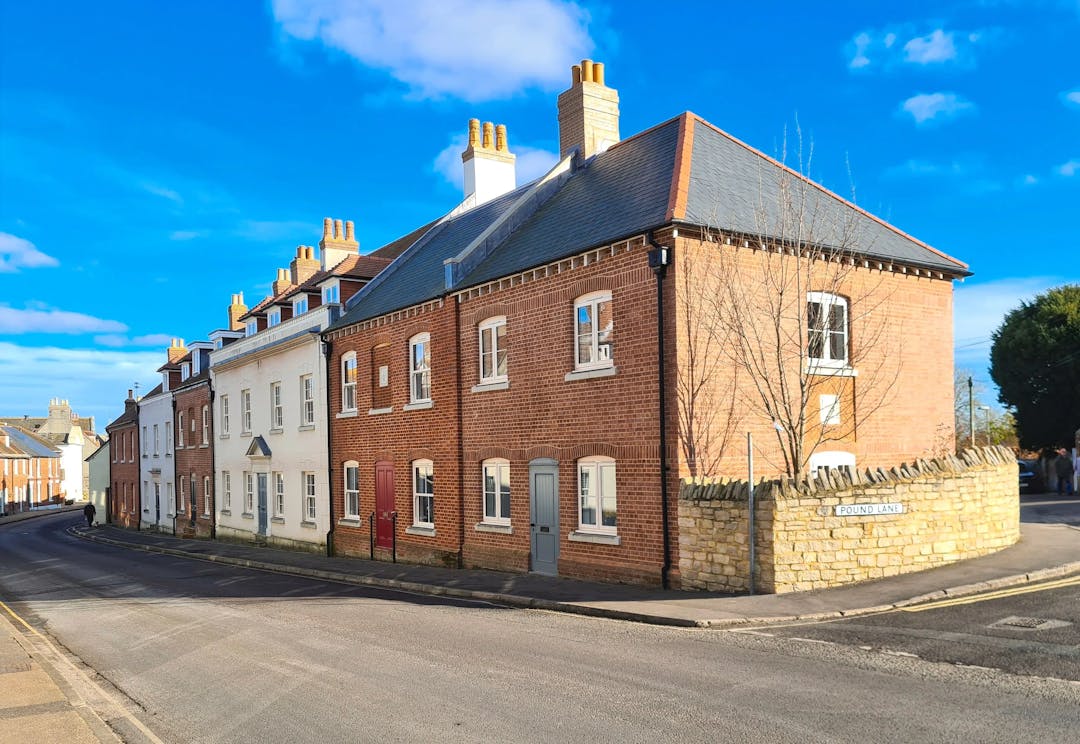Do Over 60s Get Free Dental Treatment? Check If You’re Eligible

Estimated Reading Time: 12 minutes
By claiming free dental treatment through the NHS, some people aged over 60 will be able to save a huge amount of money - potentially more than £300 per treatment.
NHS dental charges can be a little confusing, due to England, Wales, Scotland and Northern Ireland each having their own methods for calculating dental costs.
To make this all clearer, we’ve explained whether over 60s get free dental treatment in the UK, along with other ways you could be eligible for free dental treatment and how much it costs otherwise.
Where would you like to live?
Browse the best retirement homes near you through Lottie.
In this article:
- Free NHS dental treatment for over 60s
- At what age do you get free dental treatment in the UK?
- Other ways you could be eligible for free NHS dental treatment
- How much does NHS dental treatment cost if you don’t get it for free?
- Find an NHS dentist
- The importance of dental care as you age
- Dental care in a care home
Free NHS Dental Treatment For Over 60s
NHS dental treatment generally isn’t free for over 60s, but you could still be eligible for free treatment, depending on whether you or your partner receive certain benefits and your personal circumstances.
While receiving Pension Credit Savings Credit alone doesn’t automatically grant entitlement to free dental care, you can still apply for assistance through the NHS Low Income Scheme.
It’s also worth noting that people over 60 living in Scotland and Wales are entitled to free NHS dental examinations.
Below, we've gone over the specific rules for each part of the UK when it comes to free dental treatment for over 60s, as well as eligibility for other free treatment through the NHS.
Do over 60s get free dental treatment in England?
If you’re aged 60 or over and live in England, you’re eligible for free NHS prescriptions, but not for free dental treatment or checkups.
If you’re under 18, under 19 and in full-time education, getting treated in an NHS hospital and your treatment is being performed by a hospital dentist, or if you’re on low-income benefits (such as the guarantee credit part of Pension Credit), you won’t have to pay for NHS dental services.
Do over 60s get free dental treatment in Scotland?
If you’re aged 60 or over and live in Scotland, you’re eligible for free NHS dental examinations carried out in Scotland. The doctor will let you know of any treatment you need following this checkup. Through NHS Scotland, you’ll pay 80% of the total cost of treatment (up to a maximum dental cost of £384).
If you’re aged 60 or over in Scotland, you’ll also get free NHS prescriptions and NHS eye tests.
Do over 60s get free dental treatment in Wales?
If you’re aged over 60 or under 25 and live in Wales, you’re eligible for free NHS dental examinations carried out in Wales. For this to apply, you must be over 60 or under 25 on the date your NHS dental treatment starts. You’ll then pay for any further treatment, such as fillings, extractions and X-rays.
You'll also be eligible for free NHS prescriptions and eye tests.
Below, we’ve shared various exemptions for NHS dental treatment. The majority of these apply to everyone, irrespective of age.
At What Age Do You Get Free Dental Treatment In the UK?
In England, NHS dental services are provided without any charge to people aged under 18, or under 19 who are in full-time education. Scotland and Wales offers free NHS dental examinations for people over 60, while Wales also offers free dental examinations for people aged 25 and below.
Seven Other Ways You Could Be Eligible For Free NHS Dental Treatment
1. Free dental services
You don’t have to pay for the following dental services:
- Denture repairs
- Having stitches removed
- Stopping blood loss
- Having a prescription written out (though if you pay for prescriptions, you’ll have to pay the standard prescription charge of £9.65)
2. NHS Low Income scheme
If you have a low income, the NHS Low Income scheme could help you pay for several things, including:
- NHS dental treatments
- NHS prescriptions
- Eye tests, glasses and contact lenses
- Travel expenses for receiving NHS treatment
- NHS wigs and fabric supports
You’ll be eligible for the Low Income Scheme if you or your partner receive any of the following benefits:
- The Guarantee Credit part of Pension Credit
- Income Support
- Income-related Employment and Support Allowance
- Income-based Jobseeker’s Allowance
- Universal Credit (in some circumstances)
Anybody can apply for Low Income scheme support, provided they don’t have savings or investments above the capital limit. These limits are:
- £23,250 for people permanently living in a care home (£24,000 in Wales)
- £16,000 for everyone else
You can find out if you’re eligible by filling out a HC1 form. However, if you or your partner already receive one of the above benefits, you don’t need to fill this in.
3. If you claim Universal Credit
If you’re on Universal Credit, you could be eligible for assistance paying health costs like dental treatment.
To make a claim, show a copy of your Universal Credit award notice to your dentist. To qualify, your earnings must be at or below the £435 threshold during your most recent assessment period (or £935 if your Universal Credit covers a child or limited working capability).
Here are the 2024 Universal Credit rates.
4. If you receive tax credits
If your family’s annual income is £15,276 or less and you receive tax credits, you might be eligible to receive an NHS tax credit exemption certificate (you’ll automatically be sent a tax credit exemption certificate in this case).
You need to receive one of the following:
- Child Tax Credit
- Working Tax Credit and Child Tax Credit (paid together)
- Working Tax Credit (including a disability element)
5. If you're below a certain age
In England, you’re entitled to free NHS dental treatment if you’re aged:
- Under 18
- Under 19 and in full-time education
You need to be at the above ages at the start of your treatment.
6. If you're pregnant or a new parent
If you’re pregnant or have had a baby in the last 12 months, you’re entitled to free NHS dental treatment.
7. If you're using an NHS hospital service
If you’re staying in an NHS hospital while being treated by a hospital dentist, or you’re using an NHS hospital dental service and don’t need to stay overnight, dental treatment is also free.
We can help you find the perfect UK retirement home. Use our free service to filter by location, price, the facilities available, purchase type and more!
How Much Does NHS Dental Treatment Cost If You’re Not Eligible For Free Dental Care
Paying for NHS dental treatments works differently, depending on where you live in the UK. Fees in England and Wales are split into different bands, whereas you’ll pay 80% of the treatment cost (up to a maximum of £384) in Scotland and Northern Ireland.
England
The amount you pay for dental treatment in England depends on which of the four bands the work you require falls into. The first band covers basic dental care, while the second and third bands cover more complicated procedures. Meanwhile, the fourth band (Urgent) covers treatment that needs to be quickly performed.
In England, the price for dental work within each of these bands rose by 4% in April 24th 2024.
For example, the cost of a check-up is rising by £1. Similarly, the cost of extractions and fillings is rising by £2.80.
| Band | What It Includes | Cost (From April 2024) | Previous Cost |
|---|---|---|---|
| 1 | Examination, diagnosis (including radiographs and x-rays), tailored advice, scale and polish (if clinically needed), preventative care (such as applying fluoride varnish or fissure sealant) | £26.80 | £25.80 |
| 2 | Everything in Band 1, as well as further treatment such as extractions, root canal treatment and fillings | £73.50 | £70.70 |
| 3 | Everything in Band 1 and 2, as well as courses of treatment and more complex procedures such as crowns, bridges, dentures and other laboratory work. Braces may sometimes fall into this category as well | £319.10 | £306.80 |
| 4 (Urgent) | Assessments and treatments which have been classified as urgent, including pain relief, repairing dental appliances and temporary fillings | £26.80 | £25.80 |
You’ll always pay the price of the most expensive dental charge. For example, if you require a filling (Band 2) and a crown (Band 3), you’ll pay the Band 3 price. This amount remains the same, even if you require multiple fillings or crowns, as long as they’re all provided within the same treatment course.
Wales
The dental bands through NHS Wales are similar to those in England. However, the price within each band is slightly less expensive.
| Band | What It Includes | Cost |
|---|---|---|
| 1 | Examination, diagnosis (including radiographs and x-rays), tailored advice, scale and polish (if clinically needed), preventative care (such as applying fluoride varnish or fissure sealant) | £20.00 |
| 2 | Everything in Band 1, as well as further treatment such as extractions, root canal work and fillings | £60.00 |
| 3 | Everything in Band 1 and 2, as well as courses of treatment such as crowns, bridges, dentures and other laboratory work. Braces may sometimes fall into this category as well | £260.00 |
| 4 (Urgent) | Assessments and treatments which have been classified as urgent, including pain relief, repairing dental appliances and temporary fillings | £20.00 |
Scotland
Everyone in Scotland can get free NHS dental checkups. After you’ve had a checkup, the dentist will tell you if any additional treatment is needed. Through NHS Scotland, you’ll pay 80% of the total cost of any dental work. The maximum amount you’ll pay for a single course of treatment is £384, regardless of how long it takes, the number of visits you make or the types of treatment required.
The amount you’ll pay for a specific form of dental work will vary from person to person. To give you an idea of the price, you can expect to pay around £12.36 for simple gum treatments (scale and polish to ward off gum disease), and £7.76 for a simple tooth extraction.
Northern Ireland
When it comes to dental charges, the Health and Social Care Service in Northern Ireland uses a very similar system to that of NHS Scotland.
In Northern Ireland, you’ll pay 80% of the total cost of your dental work (just like in Scotland). The most you’ll pay for a single course of treatment is £384.
Just like in Scotland, the amount paid will vary from person to person.
One difference is that dental checkups aren’t free of charge in Northern Ireland.
Find an NHS Dentist
While finding an NHS dentist local to you or your loved one will likely prove more convenient, dentists don’t operate within specific catchment areas, meaning you’re able to choose a dentist located elsewhere if you’d prefer.
Availability is often limited, so be prepared to contact several practices if you’re looking to join a new NHS dental practice. Many dentists have waiting lists, while some aren’t able to take on any new NHS patients.
During your first visit, you’ll fill in a registration form. However, this doesn’t guarantee you NHS dental appointments going forward - it will depend on availability for new NHS patients.
You can find a dentist through the NHS website. All you need to do is enter your location for results nearby. Each result includes the dentist’s name, address, contact details and whether they’re currently accepting new patients.
Another option for dental treatment is a dental access centre. These treat people who don’t have access to a regular NHS dentist. Find your local area team through the NHS website.
If you’re unable to find a dental practice taking on new NHS patients, you can get in touch with NHS England at 0300 311 2233, or you can contact your local Healthwatch.
The Importance of Dental Care As You Age
Taking good care of your teeth and gums will keep your mouth in much better shape, while also lessening the risk of various conditions. Neglecting dental care in later life can lead to gum irritation, a dry mouth, tooth decay and greater sensitivity (due to exposed areas of tooth).
Here are the best ways to take care of your teeth and gums at 60 and over:
- Brush and floss daily
- When brushing, use a fluoride toothpaste containing between 1350 and 1500ppm (parts per million) of fluoride
- Remove plaque from your teeth (and dentures if you have them) before you go to bed and at one other time during the day
- Use an antibacterial mouthwash
- Avoid using tobacco products
- Try and keep your sugar intake down
- Increase your calcium intake
- Look after your dentures
- Regularly visit the dentist
Dental Care in a Care Home
If your loved one is living in a care home, it’s the home’s responsibility to ensure all their healthcare needs are met, including dental care.
This includes knowing what dental treatments your loved one requires or when they need their next check-up. Dental care needs should be jotted down in a resident’s care plan when they first move into the home.
A care home manager can provide further information about specific arrangements, including how residents can access regular and emergency NHS dental care services. Many homes often work with local dentists who regularly visit the home to provide checkups.
We’re on a mission to support individuals and their loved ones throughout each stage of their later living journey. For more information, check out everything Lottie has to offer.
Frequently Asked Questions
Who qualifies for an NHS exemption card?
People with certain medical conditions are eligible for free NHS prescriptions. These medical exemption certificates come in the form of credit card-sized cards. Some of the relevant medical conditions include cancer, diabetes, epilepsy or a permanent physical disability that prevents you from going outside without assistance.
What do you do if you can’t afford a dentist in the UK?
If you’re unable to afford the cost of dental care in the UK, you can apply to the NHS Low Income Scheme. This also covers things like eye tests, glasses and contact lenses, prescription charges and travel to receive NHS treatment.
To be eligible, you or your partner must have less than £16,000 in savings, investments and property, or less than £23,250 in savings, investments and property if you permanently live in a care home (£24,000 in Wales).
You need to be a pensioner, a student, earning a wage, receiving state benefits or living in a care home (at least one of these needs to apply).
Can you pay monthly for NHS dental work?
When paying for dental treatment through the NHS, you’ll only ever pay a single charge. This is the case, even if you need to make multiple visits to the dentist to complete your treatment.
However, monthly payment plans are usually an option through private dentists.



